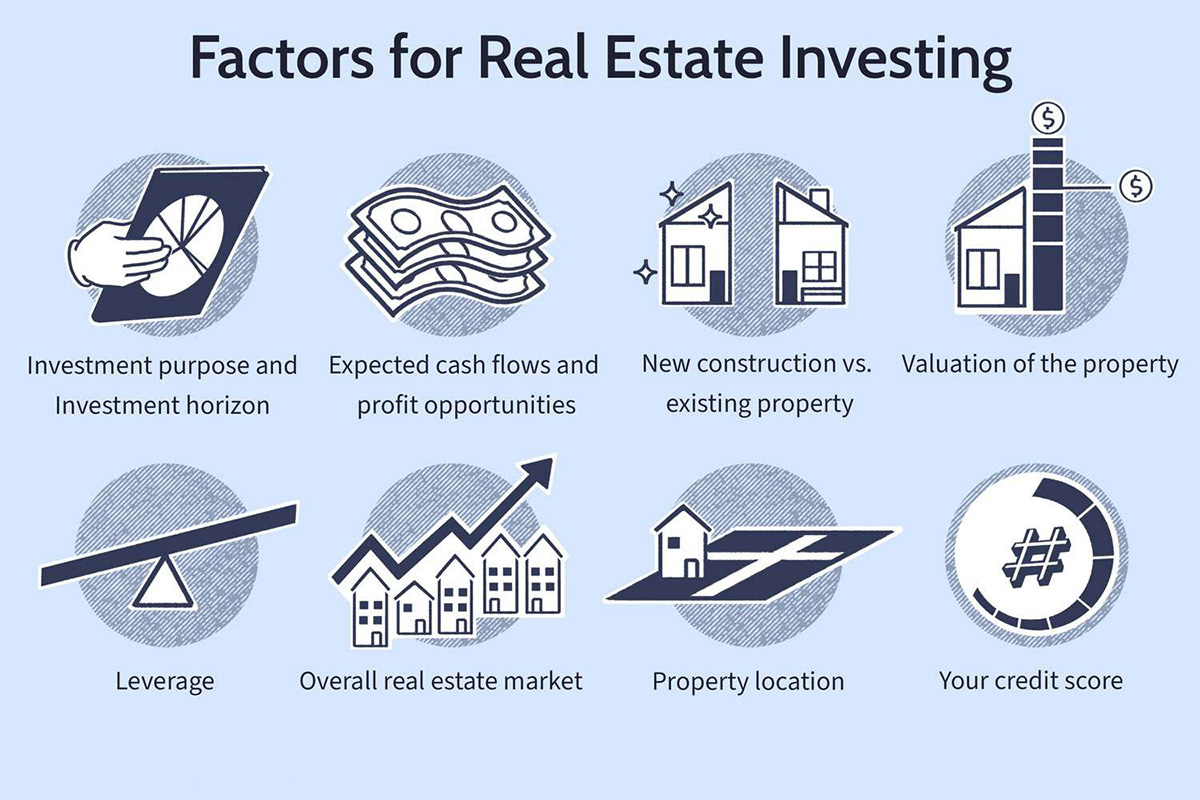Home>Finance>Real Estate: Definition, Types, How To Invest In It


Finance
Real Estate: Definition, Types, How To Invest In It
Published: January 16, 2024
Looking to invest in real estate? Learn the definition, types, and how to invest in this lucrative sector. Discover the finance behind real estate today!
(Many of the links in this article redirect to a specific reviewed product. Your purchase of these products through affiliate links helps to generate commission for LiveWell, at no extra cost. Learn more)
Real Estate: Definition, Types, How to Invest in It
When it comes to building wealth and diversifying your investment portfolio, real estate is a reliable and lucrative option. Investing in real estate can provide steady cash flow, tax benefits, and the potential for long-term appreciation. If you’re new to real estate investing or curious about its potential, this article will serve as your introductory guide to understanding the definition, types, and how to invest in this exciting asset class.
Key Takeaways:
- Real estate is a tangible asset that encompasses land and any buildings or natural resources on it.
- There are various types of real estate investments, including residential, commercial, industrial, and land investments.
Understanding Real Estate
Real estate refers to the ownership or lease of land and any improvements, such as buildings or natural resources, that are attached to it. It is a tangible asset with a finite supply, which often makes it a secure long-term investment. Real estate investments can be held for both personal use, such as owning a home, or for generating income and appreciation through rental properties or commercial ventures.
Real estate investments can be divided into several categories:
- Residential Real Estate: This includes single-family homes, multi-unit properties, condos, and townhouses that are used for personal living or rented out to tenants.
- Commercial Real Estate: This category encompasses properties used for commercial purposes, such as office buildings, retail spaces, hotels, and warehouses.
- Industrial Real Estate: These properties are used for manufacturing, production, storage, and distribution activities. Industrial real estate includes factories, logistics centers, and large-scale storage facilities.
- Land Investments: Investing in raw land can be a long-term strategy as it holds the potential for future development or appreciation.
How to Invest in Real Estate
Investing in real estate requires careful planning and consideration. Here are a few steps to get started:
- Define your investment goals: Determine the purpose of your investment—whether it is for generating rental income, capital appreciation, or both. This will help shape your investment strategy and guide your property selection.
- Research and educate yourself: Gain knowledge of the local real estate market, property values, rental rates, and economic trends. Additionally, familiarize yourself with the legal aspects of property ownership and real estate investment.
- Set a budget: Determine your investment budget and financing options. If you plan to take a mortgage, ensure your credit score and financial standing are in good shape.
- Identify potential properties: Conduct thorough market research and identify properties that align with your investment goals. Consider factors such as location, market demand, property condition, and potential for future growth.
- Conduct due diligence: Perform inspections, review property documents, and analyze the financials of the property. This step will help you make an informed decision and avoid potential pitfalls.
- Secure financing and make an offer: Once you’ve identified a suitable property, secure financing if needed and make an offer to the seller. Negotiating the purchase price and terms may be necessary.
- Manage your investment: If you choose to rent out the property, ensure proper management to maximize rental income and maintain the property’s condition. Alternatively, you can hire a property management company to handle day-to-day operations.
- Monitor and adapt your strategy: Continuously monitor market trends and evaluate your investment portfolio. Adjust your strategy as needed to optimize returns and achieve your financial goals.
As with any investment, real estate comes with its own risks and rewards. It is crucial to conduct thorough research, consult with professionals, and develop a sound investment plan before committing to any real estate venture.
In Conclusion
Real estate investment offers an opportunity to build wealth, generate income, and diversify your investment portfolio. By understanding the different types of real estate, defining your investment goals, and following a systematic approach, you can start your journey as a successful real estate investor. Remember to stay informed, adapt to the market, and make informed decisions to maximize your returns.














